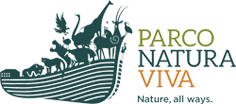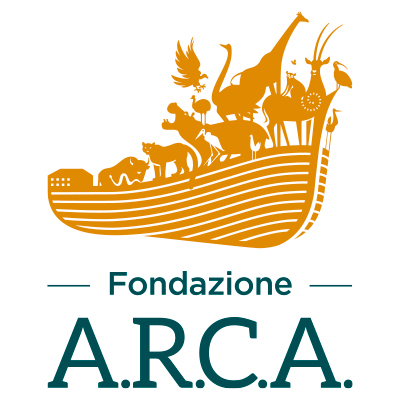Chimpanzee Project
Chimpanzees (Pan troglodytes) inhabit the tropical forests of central Africa, and in the last 20-30 years the population has shrunk considerably, mainly due to the destruction of their natural habitat and the expansion of human activity. Unfortunately, it’s suspected that this reduction will continue in the next 30-40 years. Parco Natura Viva donates its contribution to the conservation of this great ape supporting the work of the Pan African Sanctuary Alliance – PASA.
The Pan African Sanctuary Alliance – PASA, through the establishment of rescue centres in Africa, takes care of chimpanzees left orphans due to hunting aimed on one side at the illegal trade of chimpanzees as pet animals, and on the other at the sale of their meat as food, phenomenon known as “bush-meat”. For years Parco Natura Viva has been supporting PASA through the financial support of a specific sanctuary: the Tacugama Chimpanzee Sanctuary in Sierra Leone. This sanctuary takes care of welcoming chimpanzee babies, nourishes and raises them, offering adequate veterinary care and, when possible, preparing them to be released again in the wild. However, since the root of the problem concerning orphaned chimpanzees seems to be the lack of adequate conservation education, there is a broader project that involves raising awareness and involving the local and national population to protect and preserve this species in its natural environment.
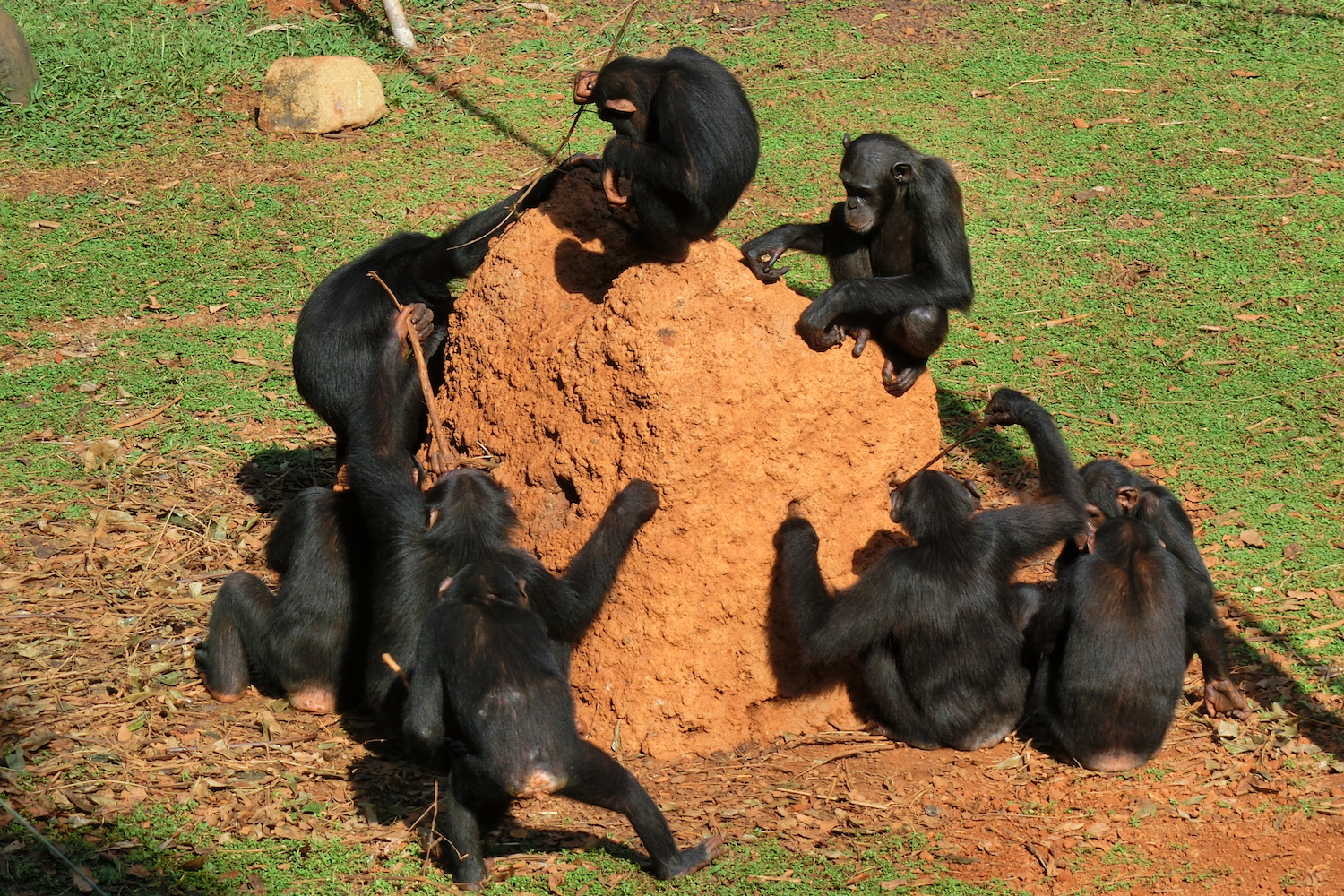 |
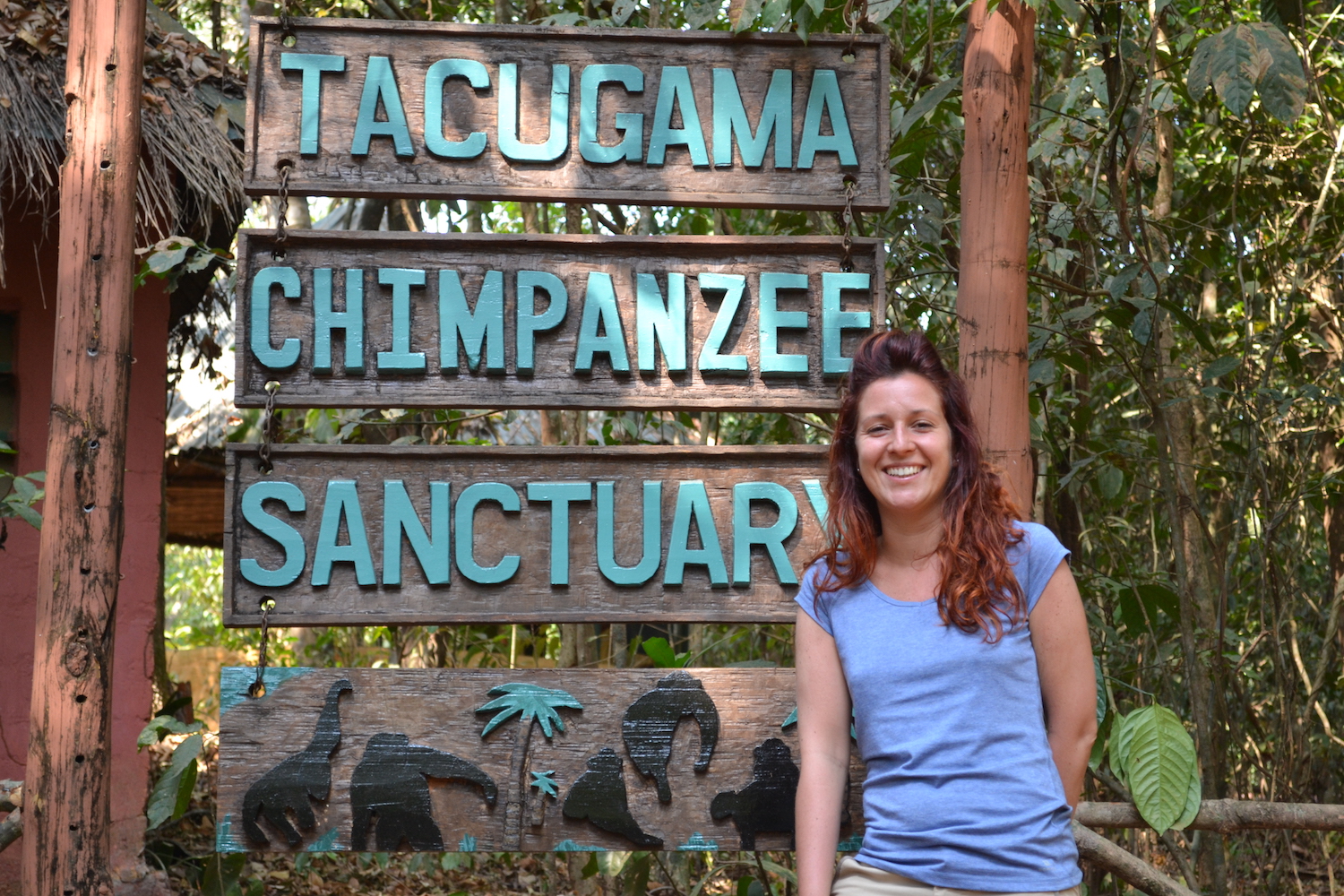 |
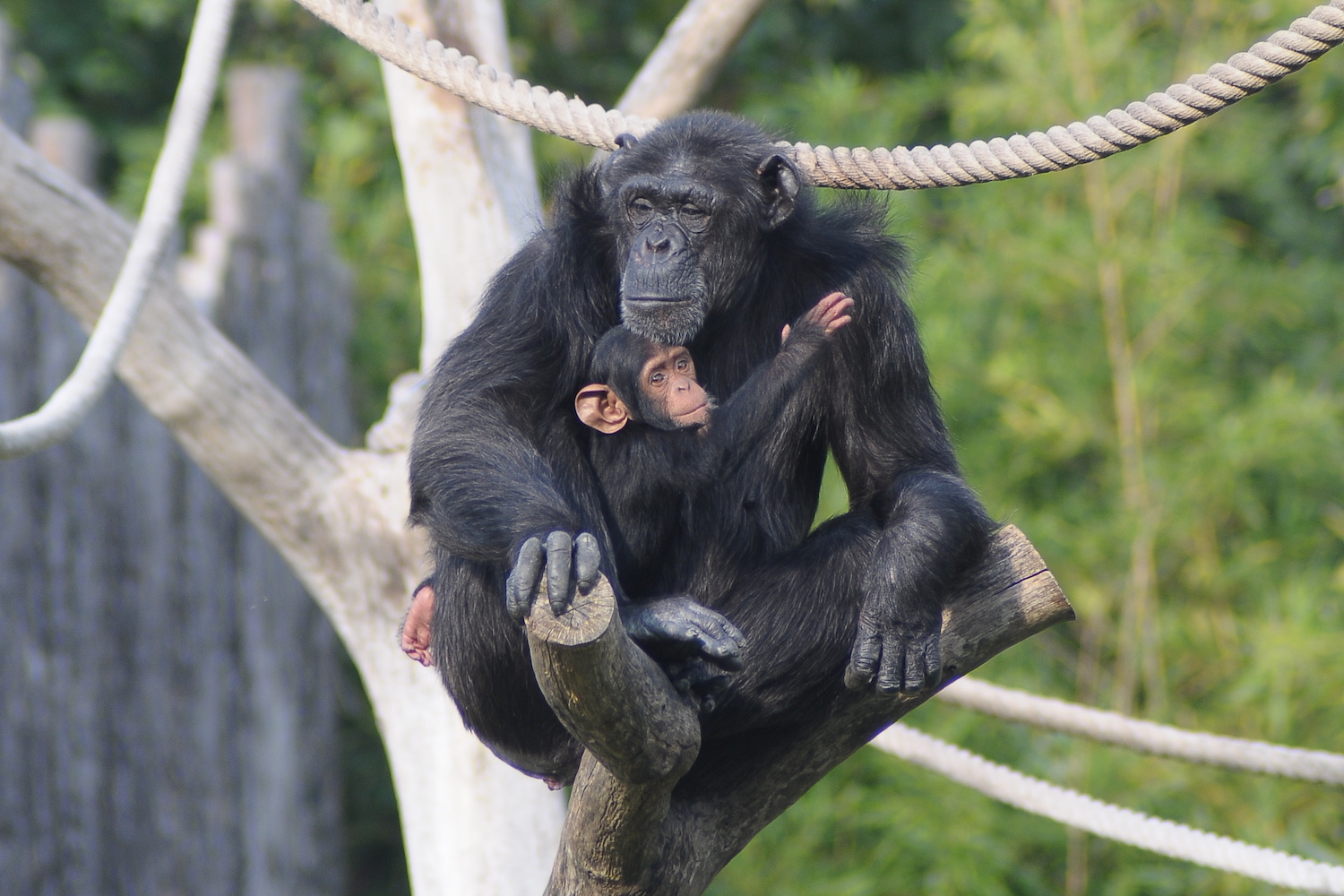 |
Chimpanzee (Pan troglodytes) is listed as “Endangered” in the IUCN Red List. In fact, even though it’s the largest and most widespread species of great ape, the population decline continues unceasingly. The threats to its survival are various; the main one is represented by the loss of natural habitat, mainly due to the agricultural practice of the “slash-and-burn”, to timber trade and to mining activity for oil and gas extraction. Another threat is poaching for meat, for the pet-trade, to obtain laboratory animals and to defend crops against attacks. Due to habitat loss and human activity expansion, the chimpanzee population has shrunk considerably in the last 20-30 years and it’s suspected that the decrease will continue in the future. Between 1970 and 2030 the decrease of the wild population could exceed 50%. Furthermore, the continuous increase of the human population in the chimpanzee distribution area leads to a greater possibility of spreading diseases such as Ebola.
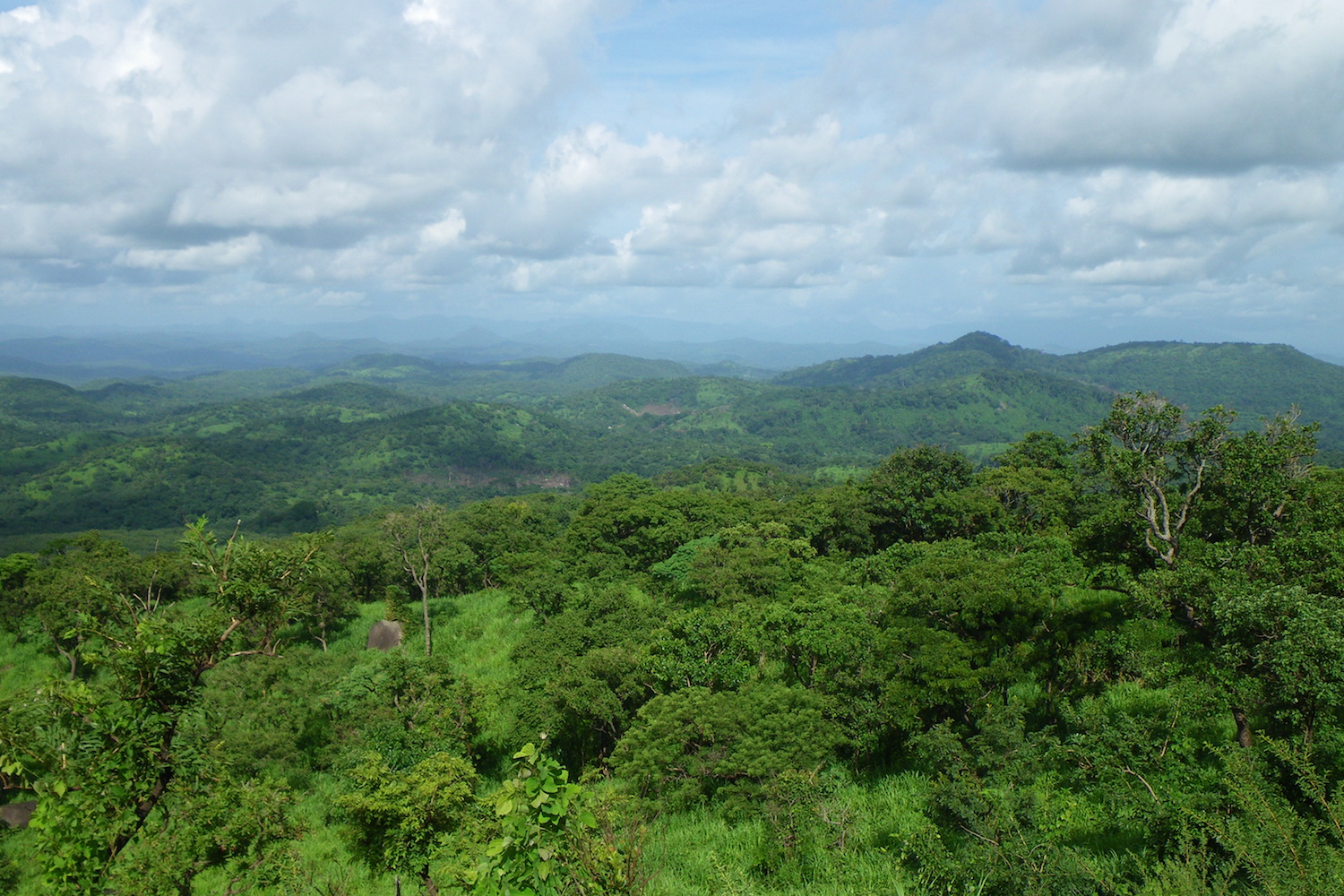 |
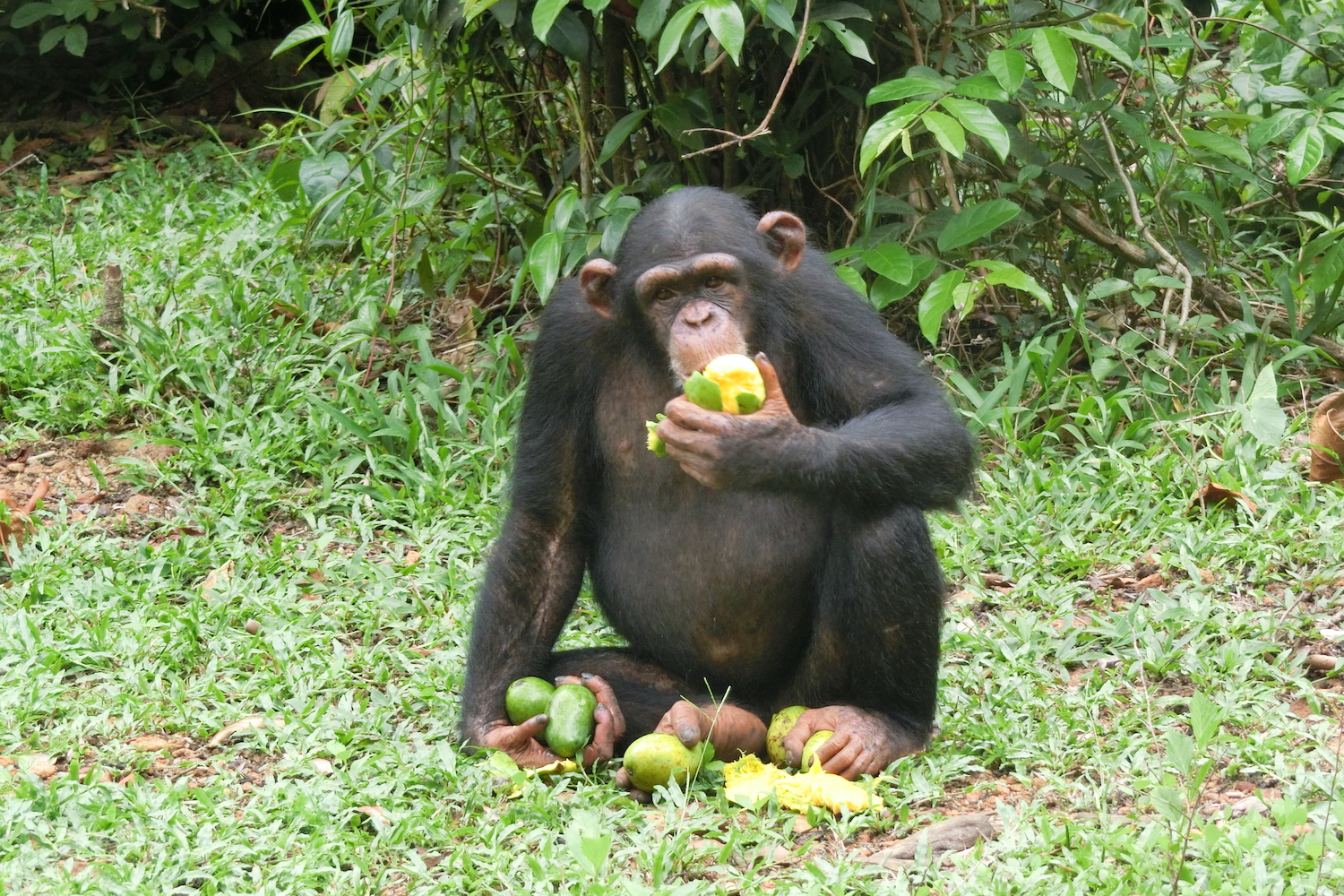 |
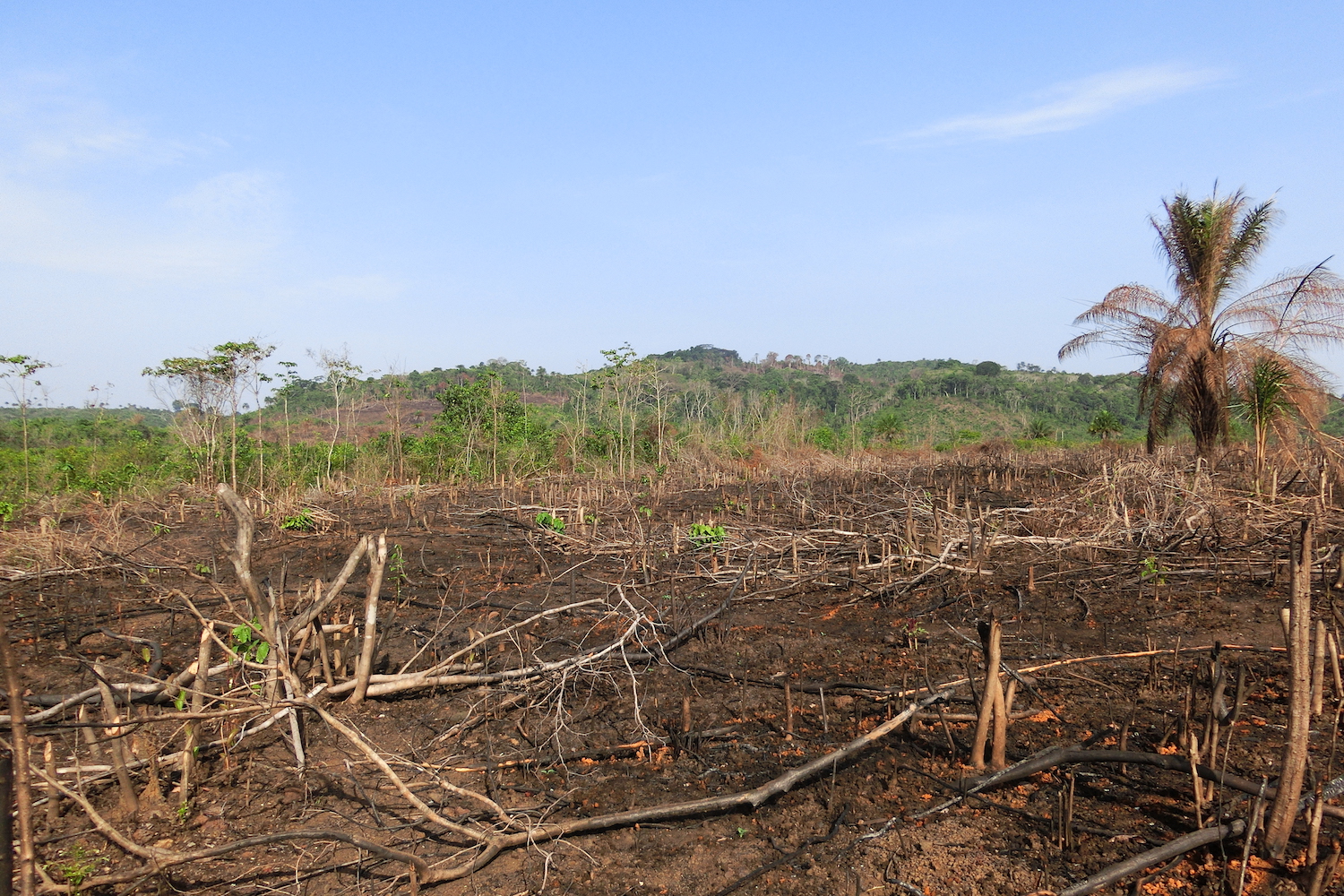 |
The park hosts the largest chimpanzee’s colony in Italy: 12 individuals. Since the State has recognized to the Park the capacity to welcome and raise confiscated animals, between 1992 and 1993 some chimpanzees confiscated from circuses and privates were entrusted to it. All individuals are included in the management programme of this species at European level, the EEP.
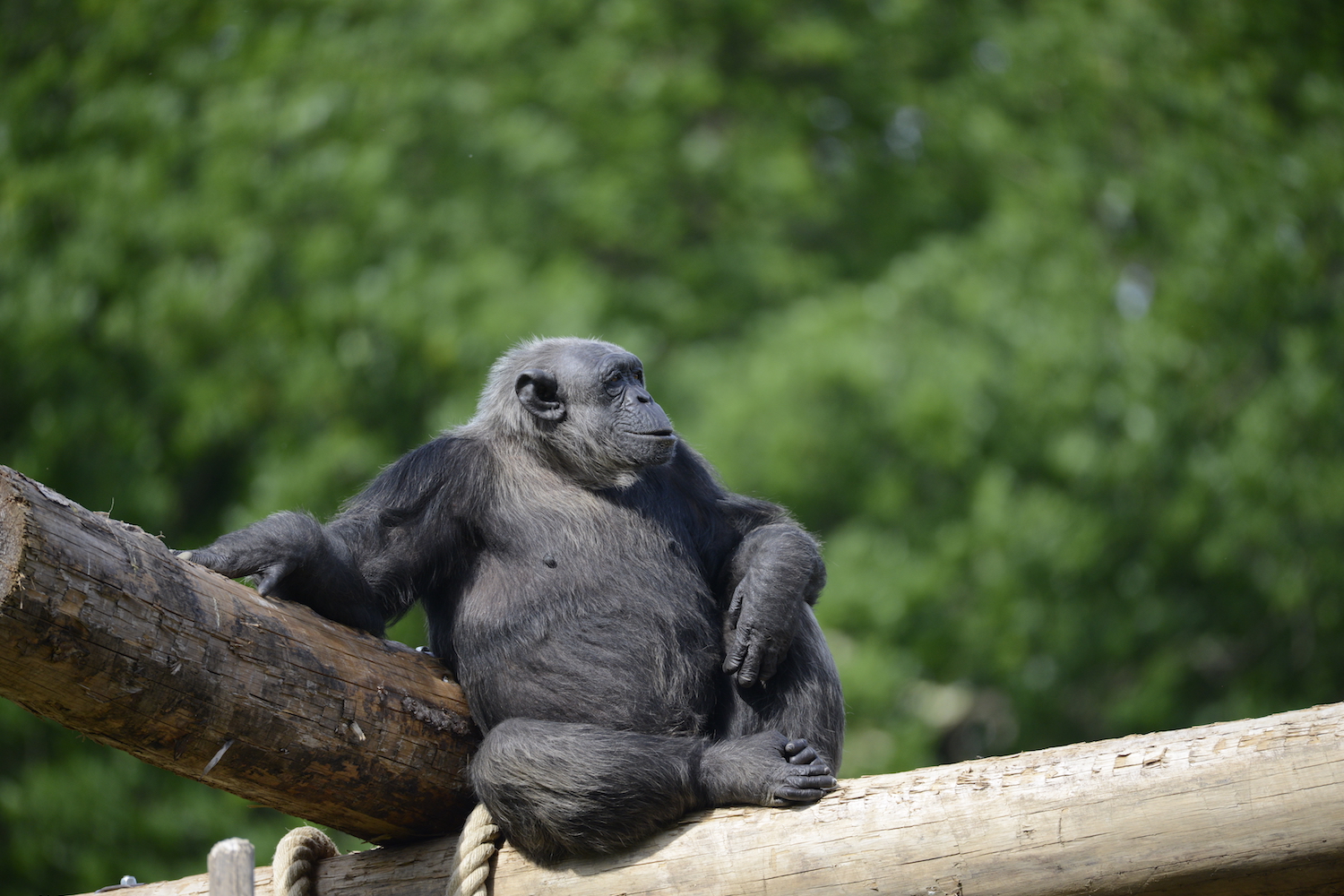 |
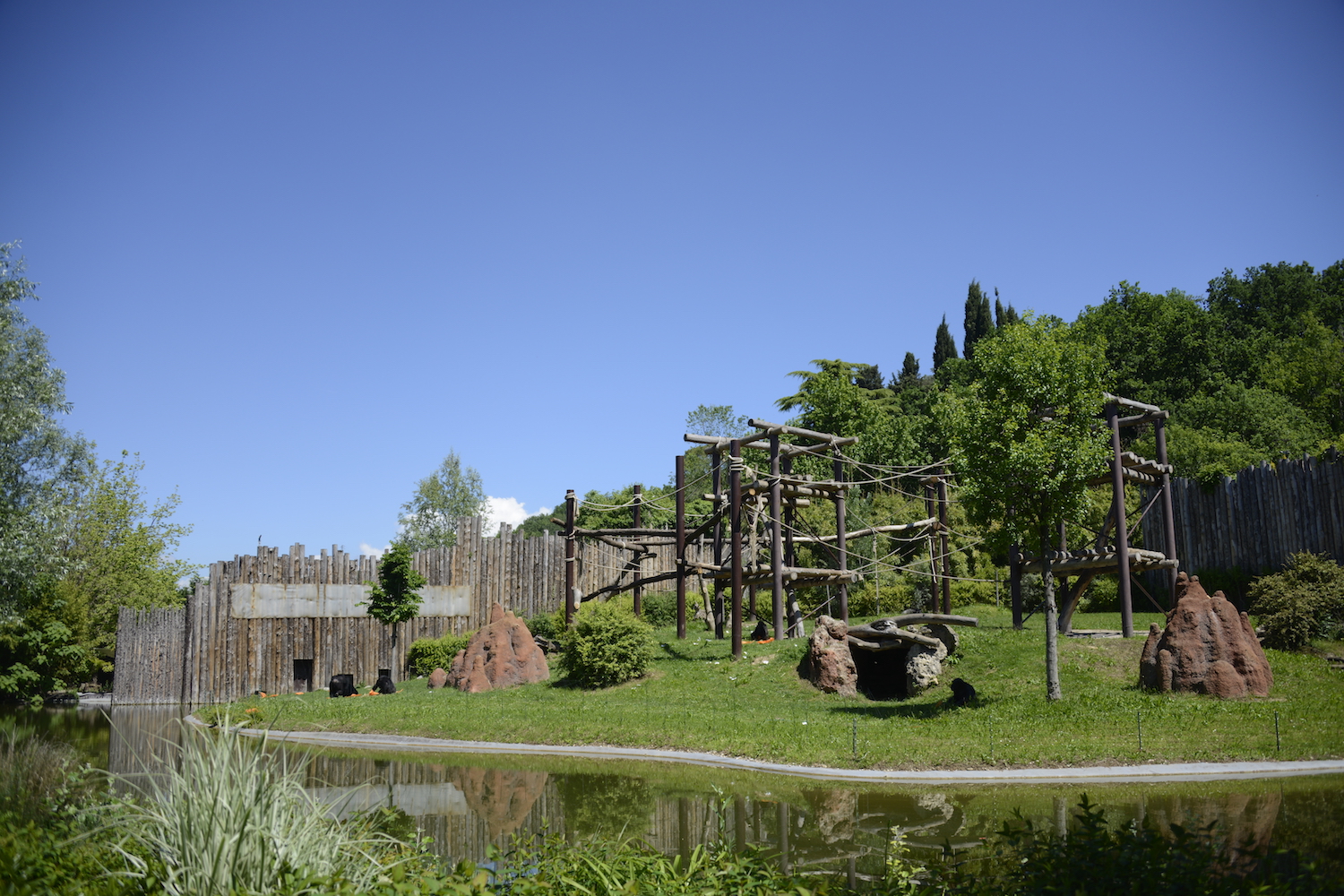 |
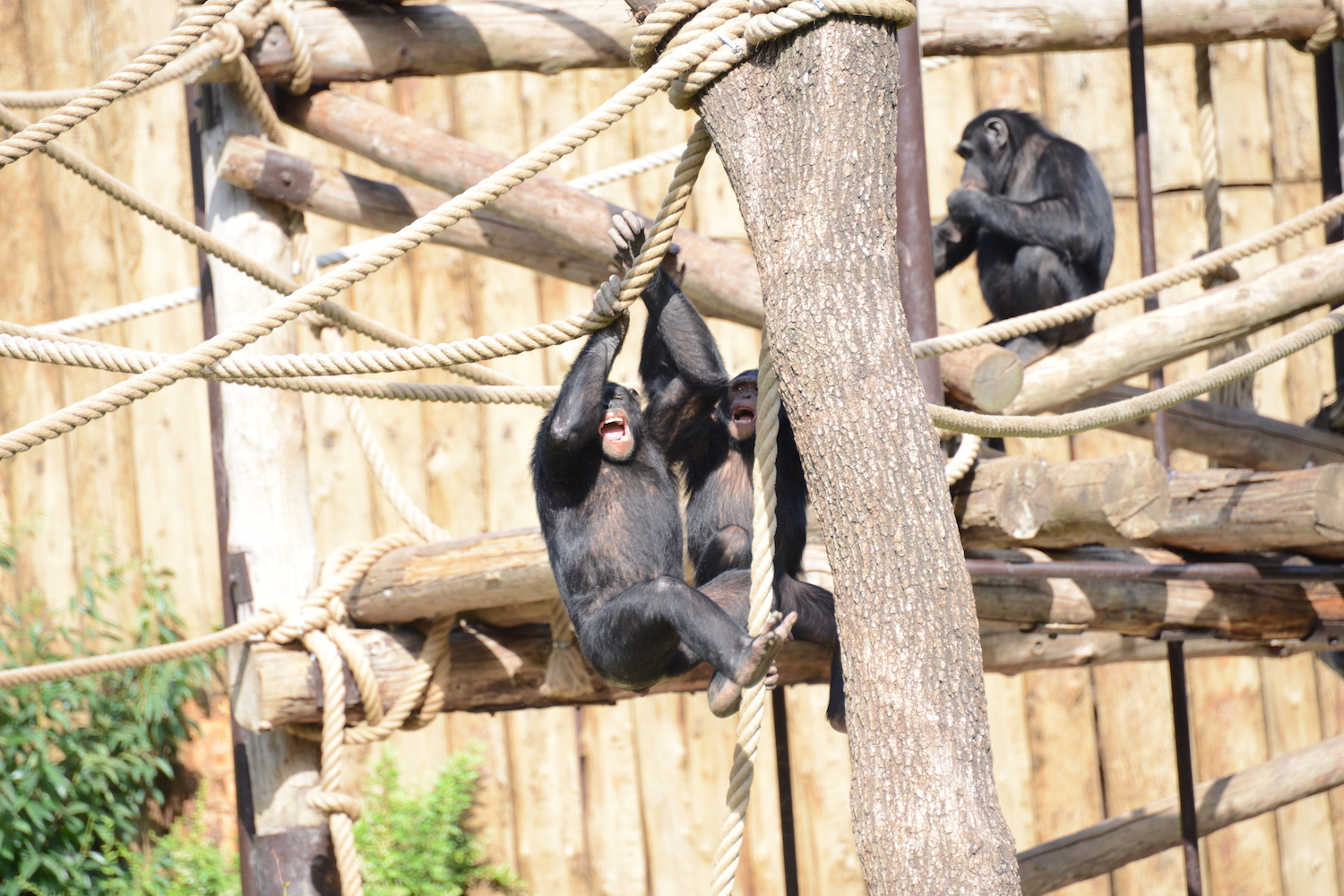 |
For years, Parco Natura Viva has been supporting the Tacugama Chimpanzee Sanctuary within the Pan African Sanctuary Alliance – PASA with an economic contribution for the protection of chimpanzees. Furthermore, the park organises education activities for the visitors in order to raise awareness on the issues faced by chimpanzee in nature, and fundraising events to support the work of PASA. Every year the World Chimpanzee Day is celebrated on the 14th of July.
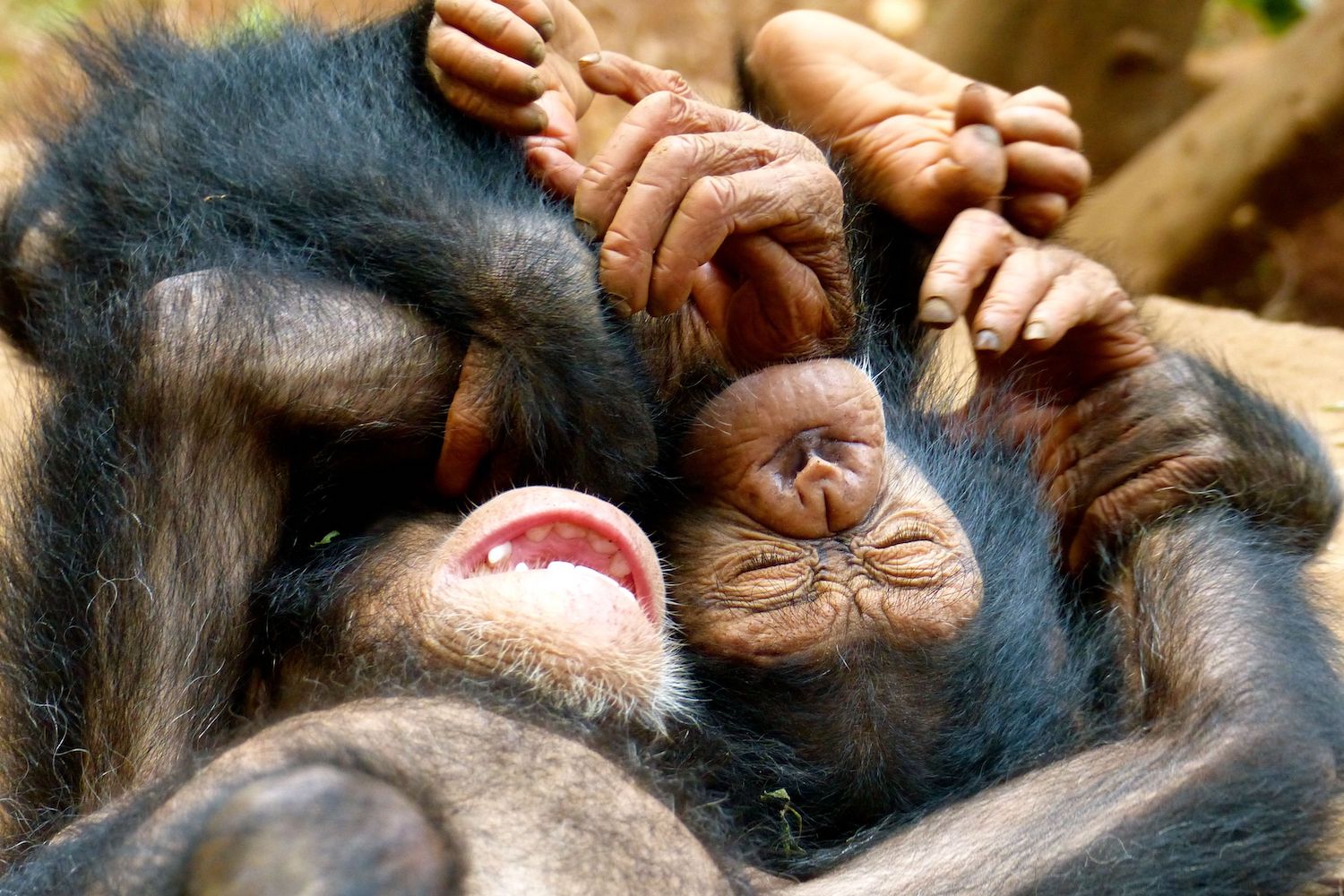 |
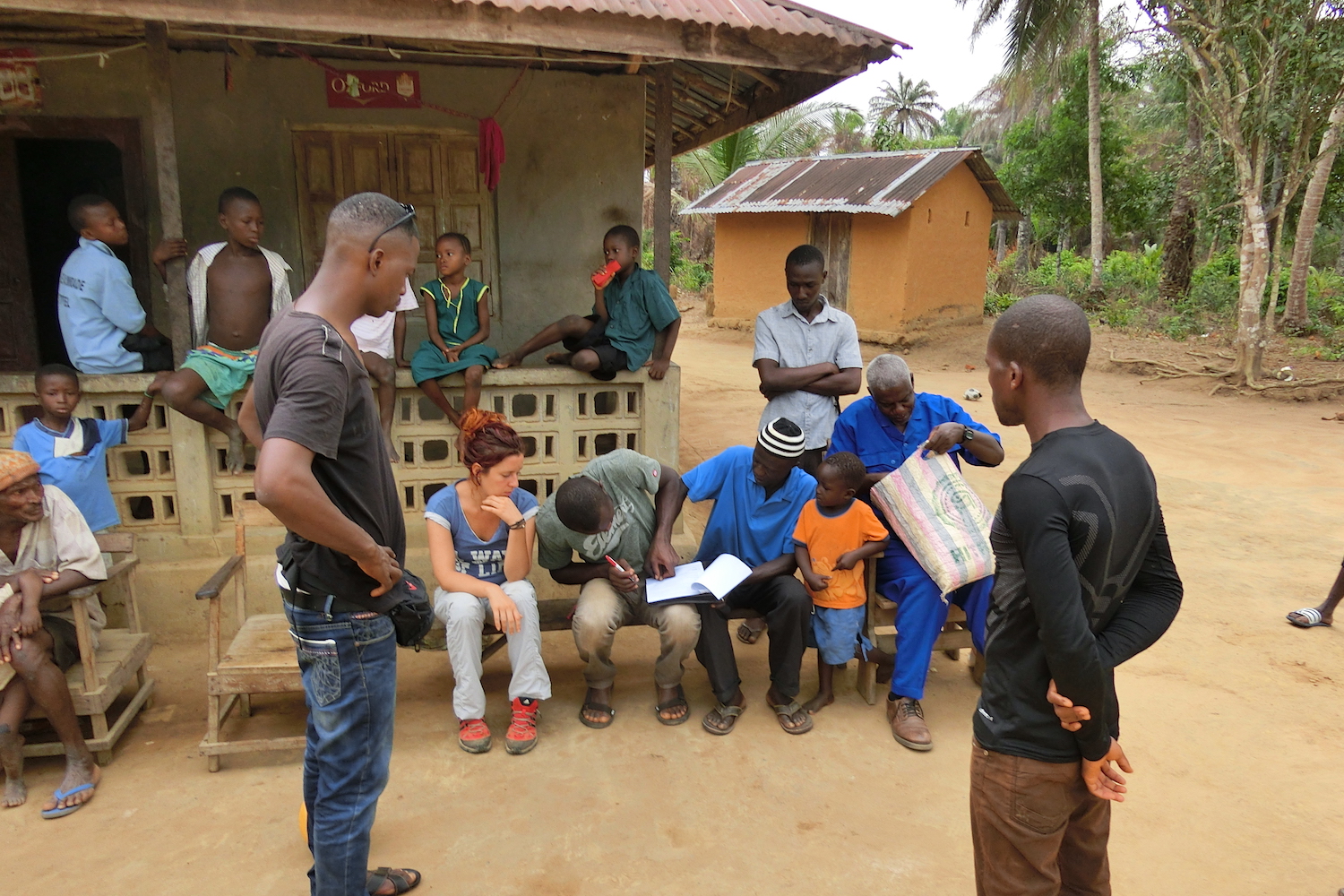 |
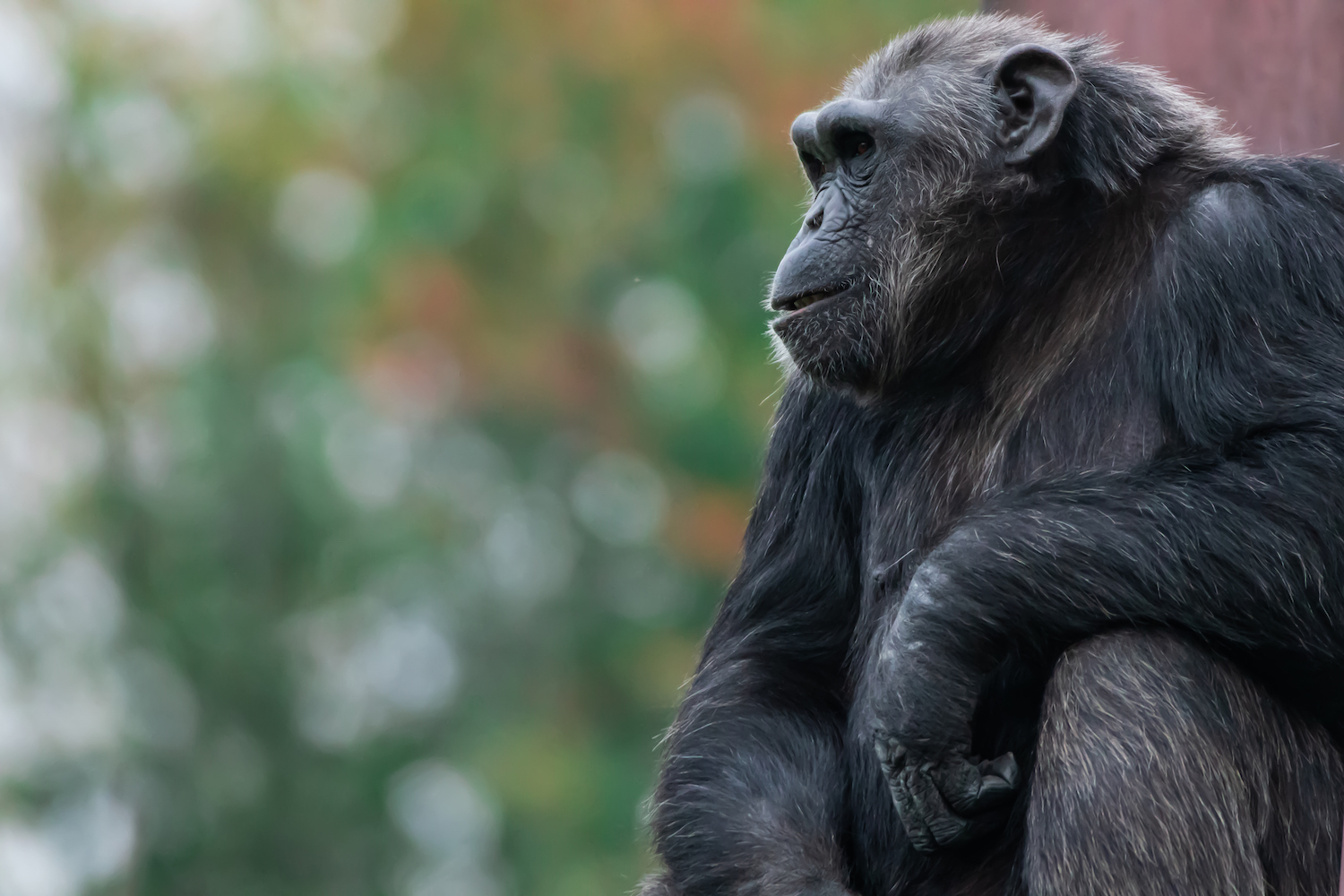 |
In 2014, Parco Natura Viva had the honour of hosting Dr Jane Goodall as special guest of the 5th edition of the National Congress on Research in Parks, thus supporting the conservation of chimpanzee not only with a financial contribution to the work carried out by the Jane Goodall Institute for their safeguard, but also giving the opportunity to Dr Goodall to involve and sensitize the public on problems faces by this species in the wild.
If you are interested in this project and you want to help saving the chimpanzees and their habitat, there are different ways in which you can contribute. By participating to the activities organized by Parco Natura Viva, such as guided tours, educational workshops and the World Chimpanzee Day, you can learn more about this species and the threats to its survival, also learning what behaviours to adopt in everyday life to protect their habitat. By adopting the park’s chimpanzees you will directly contribute to help finance this project; but even with your visit to the park you will be able to make a concrete contribution to conservation, since a percentage of the value of the admission ticket is always destined to in situ conservation projects. Finally, by making other people aware of the problems of animals in the wild, you can concretely help spread the knowledge and guarantee a future for chimpanzees in their natural environment.
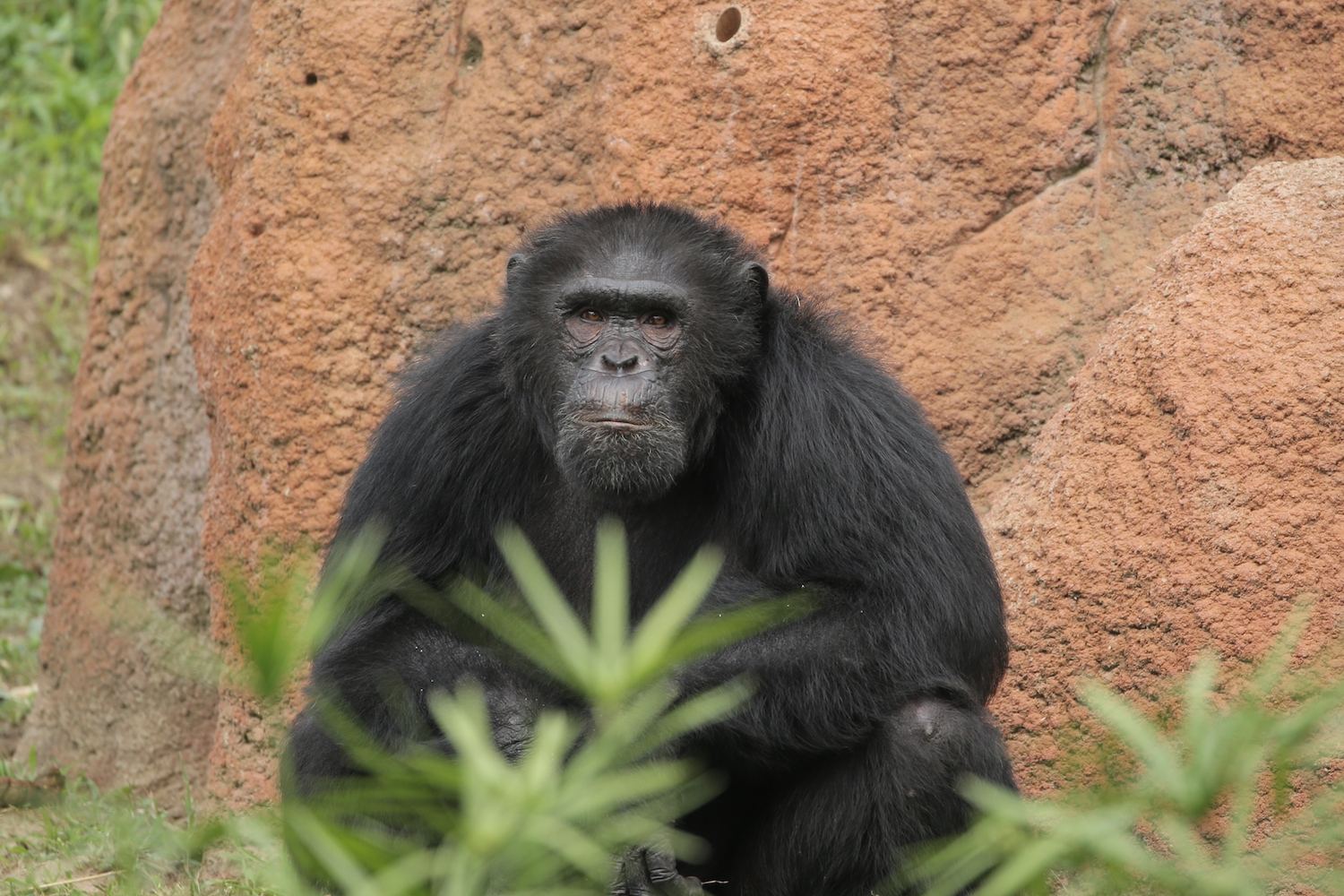 |
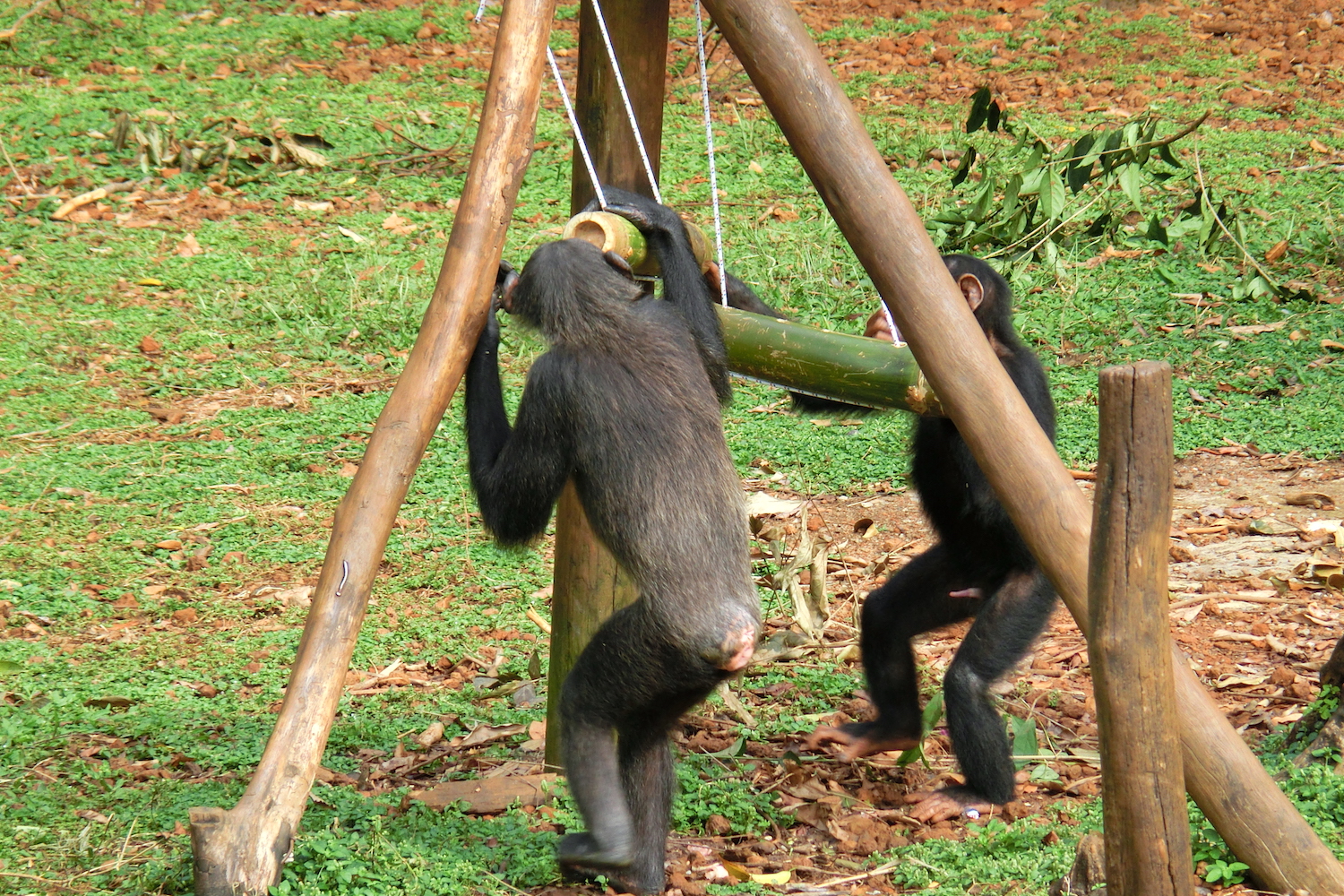 |
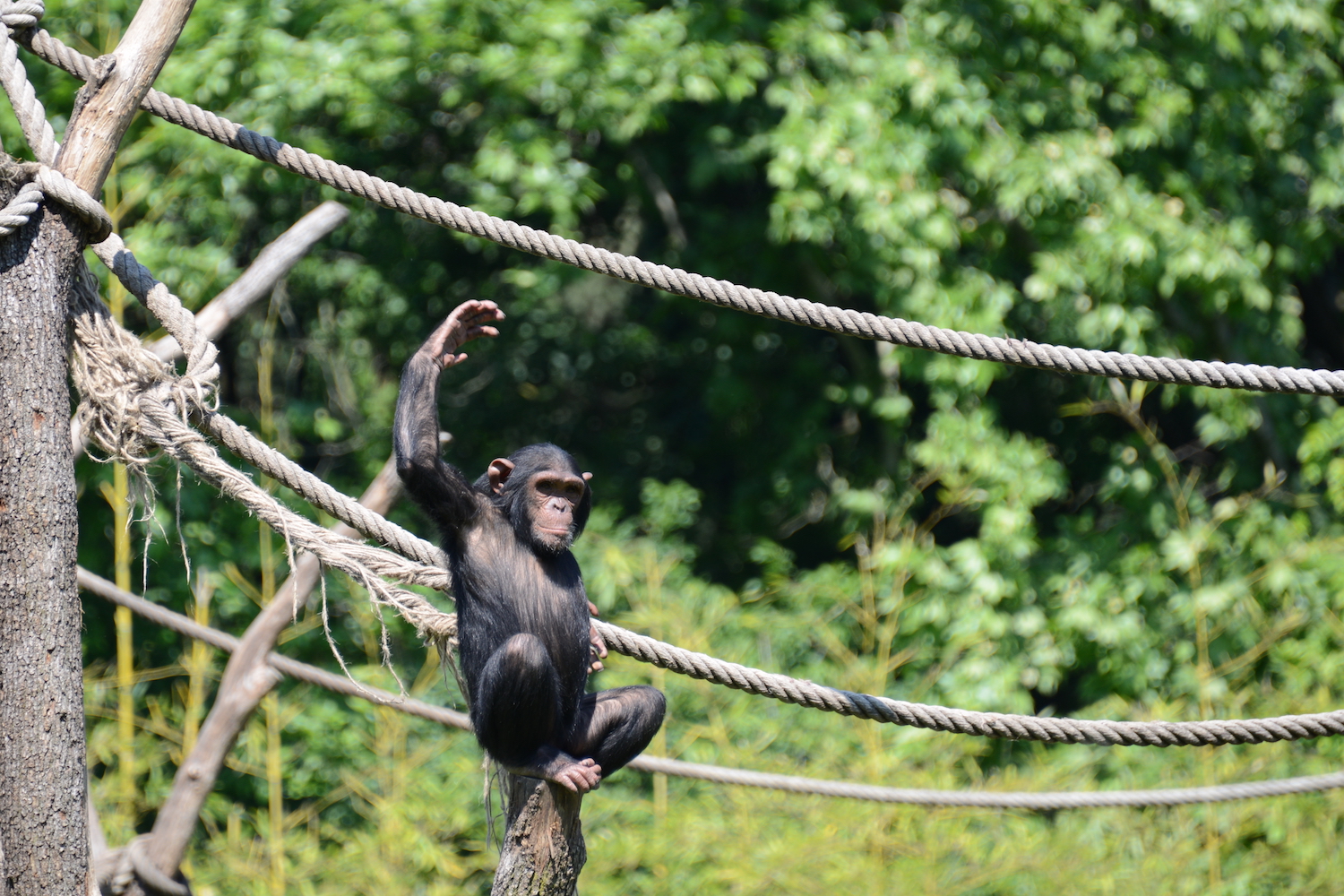 |
 Italiano
Italiano English
English Deutsch
Deutsch

